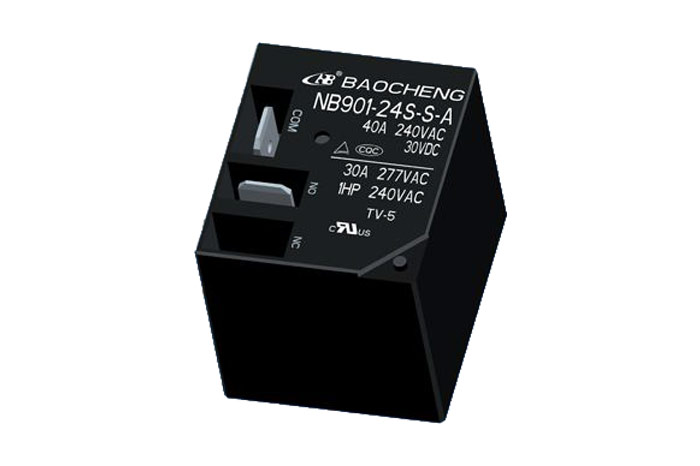What is the Difference Between Signal Relay and Power Relay?
As a Power Relay Manufacturer, share with you. The signal relay is generally used for monitoring and protection, and it is widely used in secondary protection circuits of high-voltage distribution cabinets. For example, the temperature of the transformer oil exceeds 85 degrees, and a normally open contact is closed on the temperature monitoring indicator. This contact is connected to the coil of the signal relay, so the signal relay causes the signal relay coil to pull in and the signal relay operates. The "light" sign is dropped, and the high-voltage switch is turned off to unload the transformer, thereby protecting the transformer. However, there are many types of signal relays, some of which are buzzers or flashes as alarm signals.
NB901 Relay
When the secondary protection circuit is activated, the signal relay is activated. It will accurately inform the person concerned which protection is out of order, and its appearance has a clear activation sign.
Power Relay is a device that can make a jump in one or more electrical output circuits when the input (or excitation) meets certain prescribed conditions. Can be used in the neutral point direct grounding system as the directional element of zero sequence current protection.
The power relay is directional, and the insulation withstand voltage between the coil and the contacts and between the contacts and the shell should be able to withstand a test of 500V at 50Hz for 1 minute. So what are its requirements for directionality?
First: When the analog reverse (the high and low frequency components that occur in the actual operation of the system should be considered) various short circuits and cuts, the power relay should be reliable and not act.
Second: In the action zone (phase-to-phase relays have a sensitivity angle of ± 60 °, and grounding relays have a sensitivity angle of ± 40 °) and rated voltage, when the rated current is impacted at 20 times, the UPS power supply should be reliable.
The actuators of most general relays are contact systems. Through its "on" and "off", a certain control function is completed. Contact system failures generally include contact overheating, wear, and welding. The main causes of contact overheating are insufficient capacity, insufficient contact pressure, surface oxidation or dirty, etc .; the main causes of increased wear are the contact capacity is too small, and the arc temperature is too high to oxidize the contact metal; etc. The main reasons for fusion welding are excessively high arc temperatures or severe bouncing of contacts.
The above is the entire content of the difference between signal relays and power relays. When selecting, you should also carefully confirm the data manual. Each relay has its own index, and the relay is selected according to the design circuit requirements.
Our company also has NB901 Relay for sale, welcome to consult.

评论
发表评论